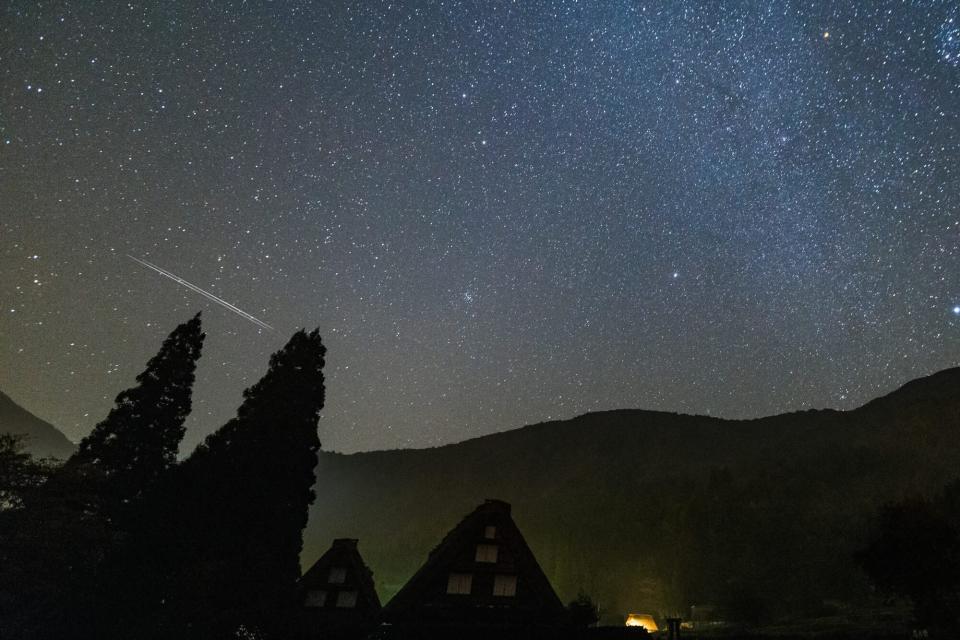The Orionid Meteor Shower Will Peak This October—Here's How to Watch It
Calling all stargazers and fans of outer space-related events: A meteor shower will be in your midst starting this October. During the month, Orionids will fall from the sky like shooting stars, and you'll be able to see the sight anywhere in the world. Orionids come from Halley's Comet, which, according to Mental Floss, is a phenomenon that passes through the inner solar system every 75 years. The last occurrence took place in 1986. When this comet makes its way through its orbit, it leaves rock and dust debris that accumulates and crosses through Earth's path twice each year. Once the debris hits our atmosphere, it vaporizes and turns into colloquially-named "shooting stars." In October, these are called Orionids.
The Orionid meteor shower's moniker comes from Orion, the constellation dubbed after a hunter in Greek mythology. This constellation is one of the more well-known and recognizable iterations, as it can easily be seen anywhere in the world. Orionids are spotted easily, too—up to 20 shooting stars can peak each hour.

Kazushi_Inagaki / Getty Images
Related: If You See a Fireball in the Sky This Week, Don't Worry—It's Just the Taurid Meteor Shower
This year, the Orionid meteor shower will crest in the evening of Wednesday, October 20. If you don't catch it that night, it will also illuminate the morning sky on Thursday, October 21. As for the best time to watch the event? The pre-dawn hours on Thursday. However, a full moon will actually rise on this day, which means the shooting stars' visibility may be diminished slightly.
But that's just the shower's peak—luckily, these Orionids will be around for quite a while, from October 2 through November 7. Go ahead and peer outside as the moon begins to dim throughout the autumn season; you'll get your early taste of Halley's Comet. As for the comet itself? We'll have to wait: It will be visible again in 2061.

